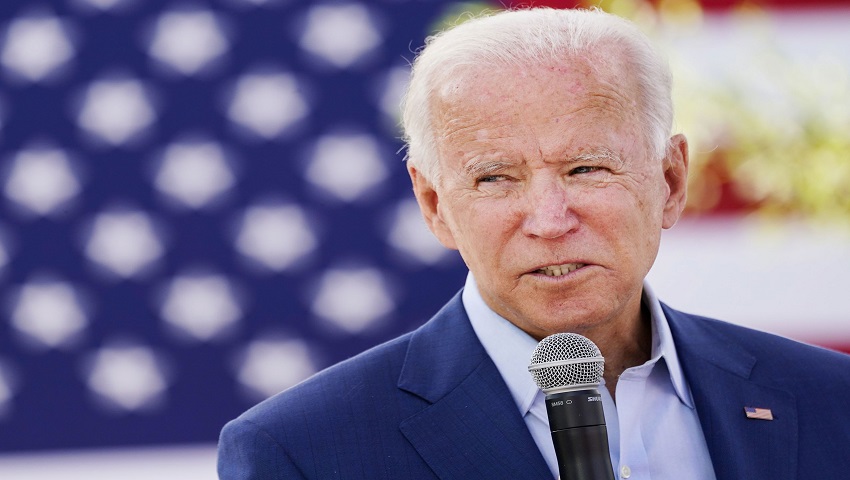Are there “winds of change” blowing in the Middle East off the back of a Biden-led pivot in US foreign policy?
To continue reading the rest of this article, please log in.
Create free account to get unlimited news articles and more!
According to Amin Saikal, adjunct professor of social sciences at the University of Western Australia (UWA), US President Joe Biden’s inauguration has sparked a sudden change in attitudes across the Middle East
Saikal points to Egypt’s recent release of Al Jazeera journalist Mahmoud Hussein, who had languished in prison since 2016, and Saudi Arabia’s release of human rights activist Loujain al-Hathloul, who had been imprisoned since 2018.
Egypt had accused Hussein of seeking to overthrow the government through his alleged affiliation with the Muslim Brotherhood, while Hathloul had been convicted of a number of criminal offences and sentenced to five years and eight months in prison.
“Are these moves likely to be followed by more and wider changes affecting the regional geopolitical landscape?” Saikal writes.
In his piece, published by the Australian Strategic Policy Institute (ASPI), Saikal contends that these sudden attitude shifts may be indicative of a broader regional effort to appease the new Biden administration.
“Whatever the details of either case, Hussein’s and Hathloul’s releases may mark the dawn of an era in which not just Egypt and Saudi Arabia but also other regional states, including Israel, might find it expedient to change tack to align themselves with the new occupant of the White House,” he writes.
“Biden has already announced a number of policy initiatives that signal a Middle East policy approach very different from that of his predecessor, the neonationalist populist Donald Trump.
“He has emphasised human rights as a major foreign policy issue, halted the sale of offensive weapons to Saudi Arabia and the United Arab Emirates, withdrawn America’s support for the Saudi-led Arab operation in Yemen and called for an end to the Yemen war, which has inflicted massive devastation on the country’s population.”
The Biden administration’s latest move was to remove the Iran-backed Houthis from the United States’ ‘terror list’, and close lines of communication with de facto leader and heir to the Saudi throne Prince Mohammed bin Salman, instead dealing only with King Salman bin Abdulaziz.
The 46th president has also hinted at a return to the Obama administration’s nuclear agreement with Iran, and has wound back support for Israeli settlements in disputed territories. President Biden has even restored some US funding to the Palestinians for humanitarian and security purposes.
“Considered together, these announcements indicate that the Biden administration isn’t interested in dealing with the region through a lens of ‘business as usual’,” Saikal continues.
“Its policy shift carries the potential to exert pressure on regional actors to engage in reform and conflict resolution, and thus dismantle some of the hurdles that have rendered the Middle East so turbulent and branded America as a contradictory player in the region.”
The UWA professor acknowledges that states across the Middle East are typically hostile to US policy preferences, but claims they may be more docile to President Biden’s approach, given their struggles to manage the far-reaching economic and social consequences of the COVID-19 pandemic.
“Even Israel — America’s closest Middle East ally — is not free of this dictum. It has experienced an unprecedented level of political instability, economic hardship and public protests, not to mention its lingering internationally damaged image over its continued occupation of Palestinian land and treatment of its inhabitants,” Saikal writes.
“Comparably, as America’s adversary, Iran has faced deeper and wider challenges. It has suffered enormously from American sanctions and the coronavirus’s savagery, which have given rise to intense bursts of public discontent from time to time.”
However, Saikal notes that further developments in the Middle East, which favour the US agenda, would depend on whether President Biden can “maintain firmly the momentum of his liberalist approach”.
He concludes: “Although Biden is confronted with mounting domestic and other foreign policy challenges, he has made a well-intentioned start with the Middle East at a time when the regional environment appears to be quite conducive to his policy changes.”
Get involved with the discussion and let us know your thoughts on Australia's future role and position in the Indo-Pacific region and what you would like to see from Australia's political leaders in terms of partisan and bipartisan agenda setting in the comments section below, or get in touch with

 Login
Login







